For a long time, there were disputes between viewers and companies about product placement. Some viewers felt that product placement made shows feel very commercialized.
This method also favors those companies that have the means to pay for their brand to be placed into TV shows.
Product placement can also highly influence the production value and broadcast content of a show.
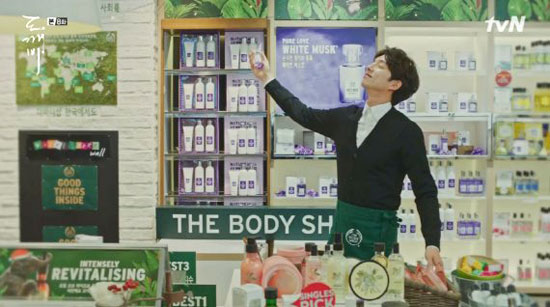
From the perspective of the television station, the show itself may not have economic intent, but with constant exposure of a brand name, there are underlying economic benefits.
Generally, cable television stations that air K-dramas and/or variety shows are profit-based. So they tend to rely on funding from product marketing, more so than other media outlets such as news stations.
What Is PPL?

PPL stands for product placement. In Korean, it is known as 간접광고 (indirect advertising). The aim is to place a product, brand, or idea strategically in media so it does not seem like blatant advertising.
There is actually a lot of thought and effort put into when and for how long a certain product or brand name is shown.
Marketers have found that it is more effective long-term, to subtly plant an idea, product, or brand name into a consumer's mind rather than straight-up advertising.
PPL is not a novel concept in Korea. There are Korean laws in place that protect the public from these kinds of advertisements. Broadcasters need to comply with Article 73 of Korea's Broadcasting Act.
In short, any products used as props in hopes of advertising need to be displayed in an obvious manner.
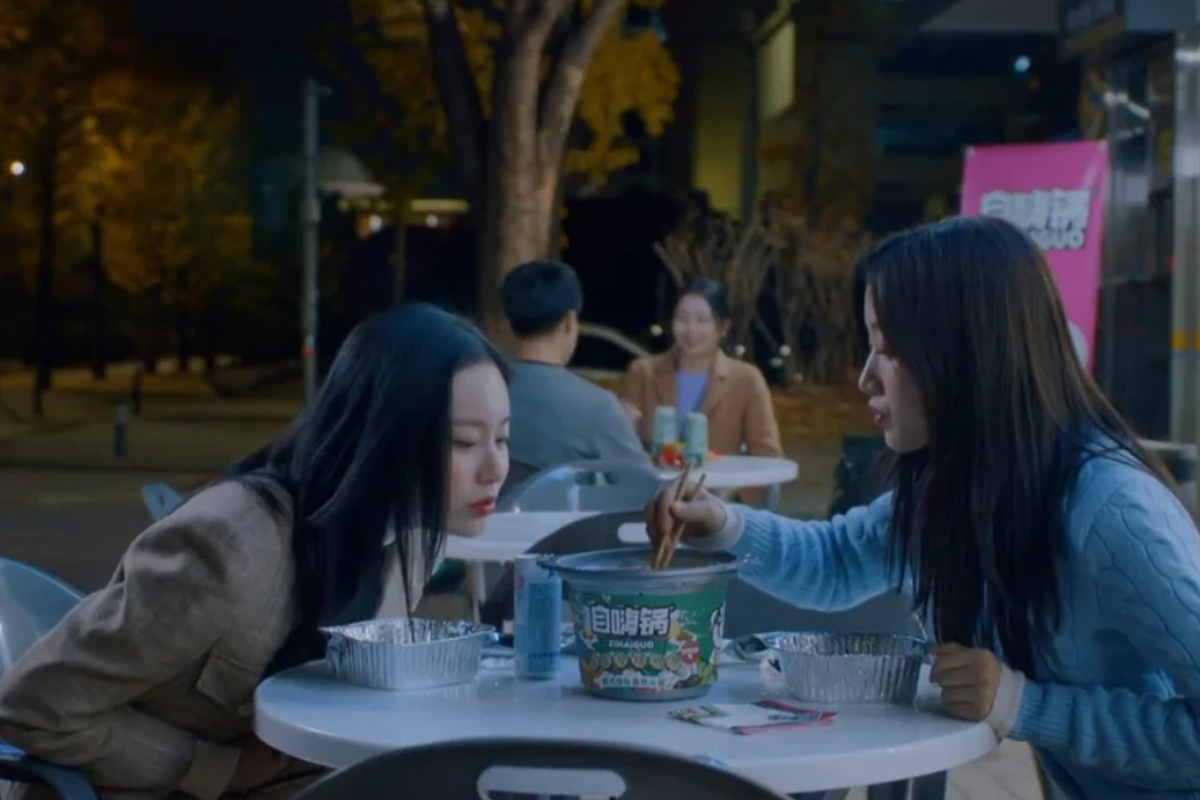 True Beauty product placement
True Beauty product placement
Broadcasting companies will sign deals for product placement to help supplement production costs.
Although TV stations may have restrictions on product placement for their broadcasts, these regulations are not very effective.
The majority of advertisements that appear on K-dramas must comply with the regulations outlined in Article 59-3 of Korea's Broadcasting Act.
South Korean Restrictions On PPL
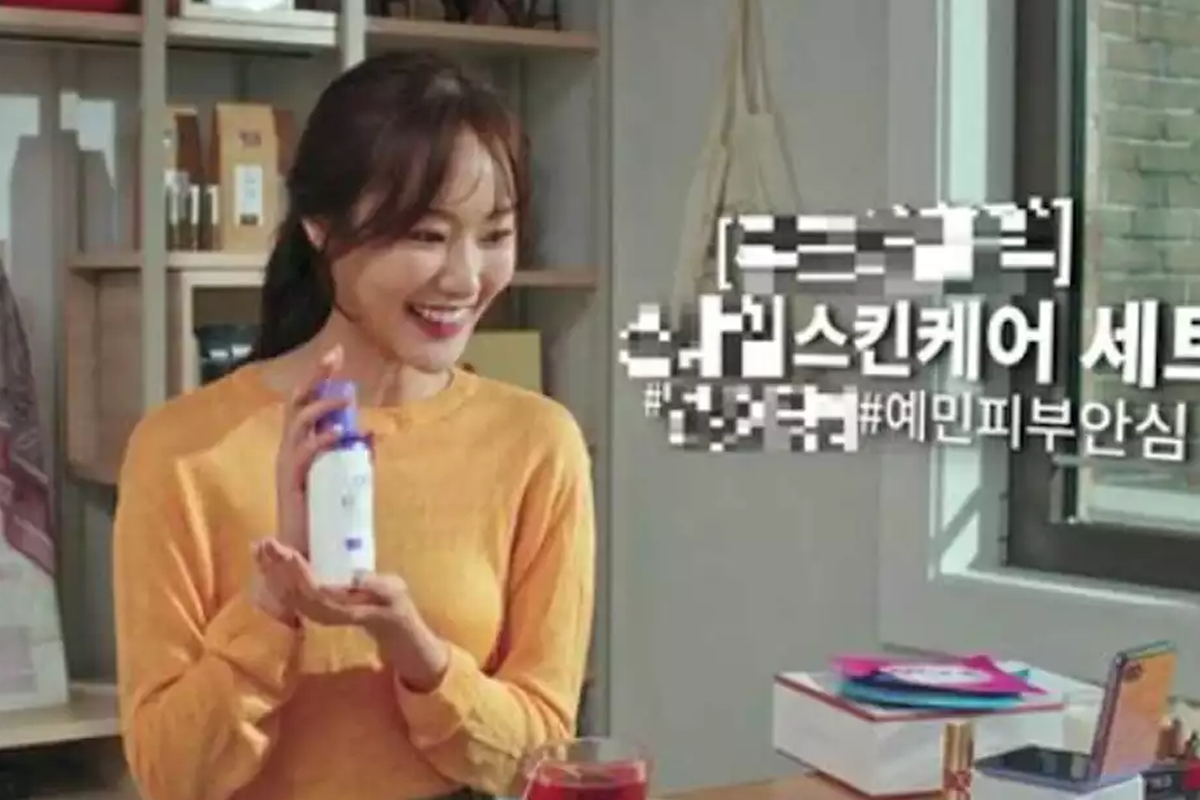
The guidelines of product placement in Korea's Broadcasting Act Article 59-3 are based on the same definition of product placement as Article 73-2.
Despite these regulations, there are exceptions.
For example, brand names that appear "accidentally" are not considered advertisements.
This is why you can sometimes identify local shops, cafes, and/or restaurants that appear on a program. These instances are exempt from the above regulations.
But, if an offender of a major current event (i.e. scandals) is wearing something with an obvious brand logo, that brand logo will be censored out to avoid any negative connotations associated with that brand.
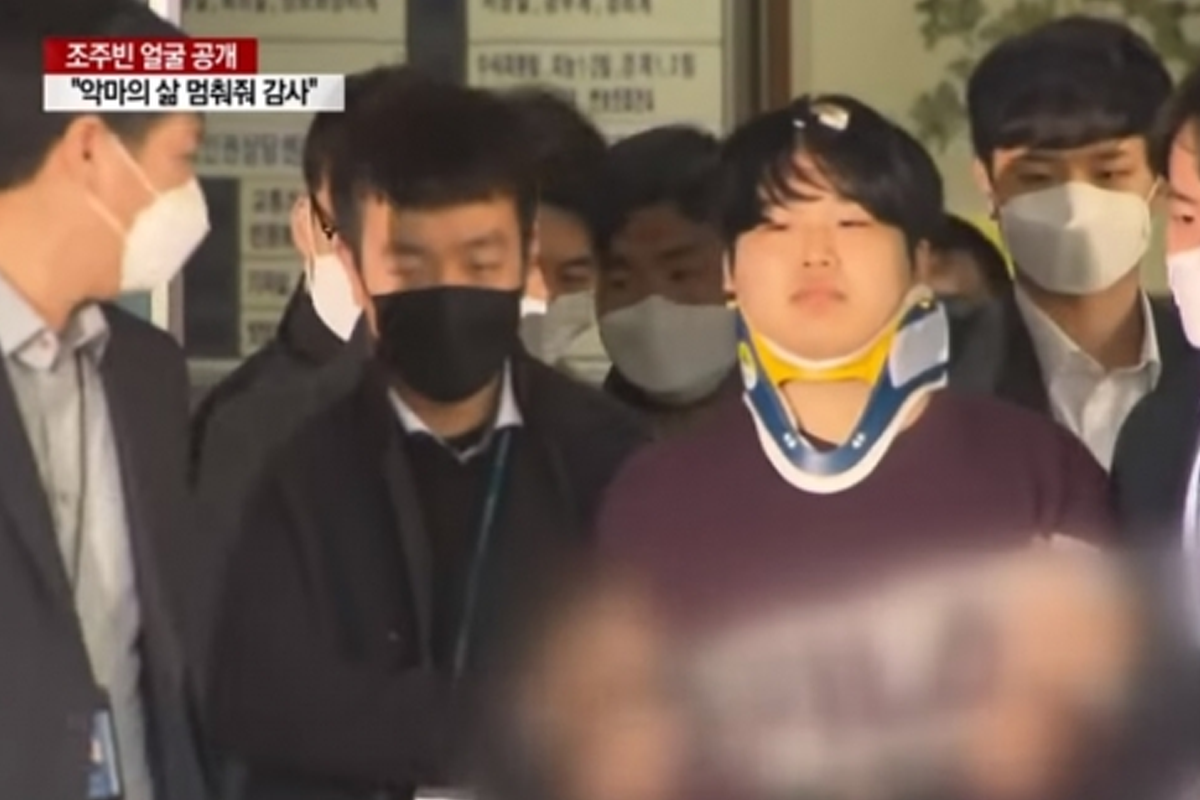 Suspect N with brand logo on shirt censored
Suspect N with brand logo on shirt censored
Korea's Broadcasting Act declares that product placement can only appear in entertainment programs. This is why PPL is common in K-dramas, and/or variety shows.
Whereas news broadcasts tend to be more careful to make sure there is some level of neutrality (e.g censorship by adding blur effects).
But if there is a news story about a specific brand, then the logo will not be blurred. But the story has to be from a neutral standpoint.
Any PPL is banned in educational programs if the primary audience is children.
Regulations Of PPL In Entertainment:
1. The goal should not be to persuade the audience to purchase a product.
2. Name of the product and/or brand cannot be directly or indirectly said.
3. Alcohol, tobacco, and any other related product cannot appear as PPL.
4. Appearances of products and/or brands cannot exceed 1.5% of the run time of the program.
5. Size of product and/or brand name cannot exceed 1/4 of the screen. If it is mobile media, then cannot exceed 1/3 of the screen.
6. If there is product placement in a program, it needs to be disclosed to the audience.
Korean marketers have found clever ways to push the boundaries of these regulations, without breaking them.
For example, while an actor cannot explicitly say "buy [this product]!" they can hold it while making a joke, or be dramatic, to bring attention to the product naturally.
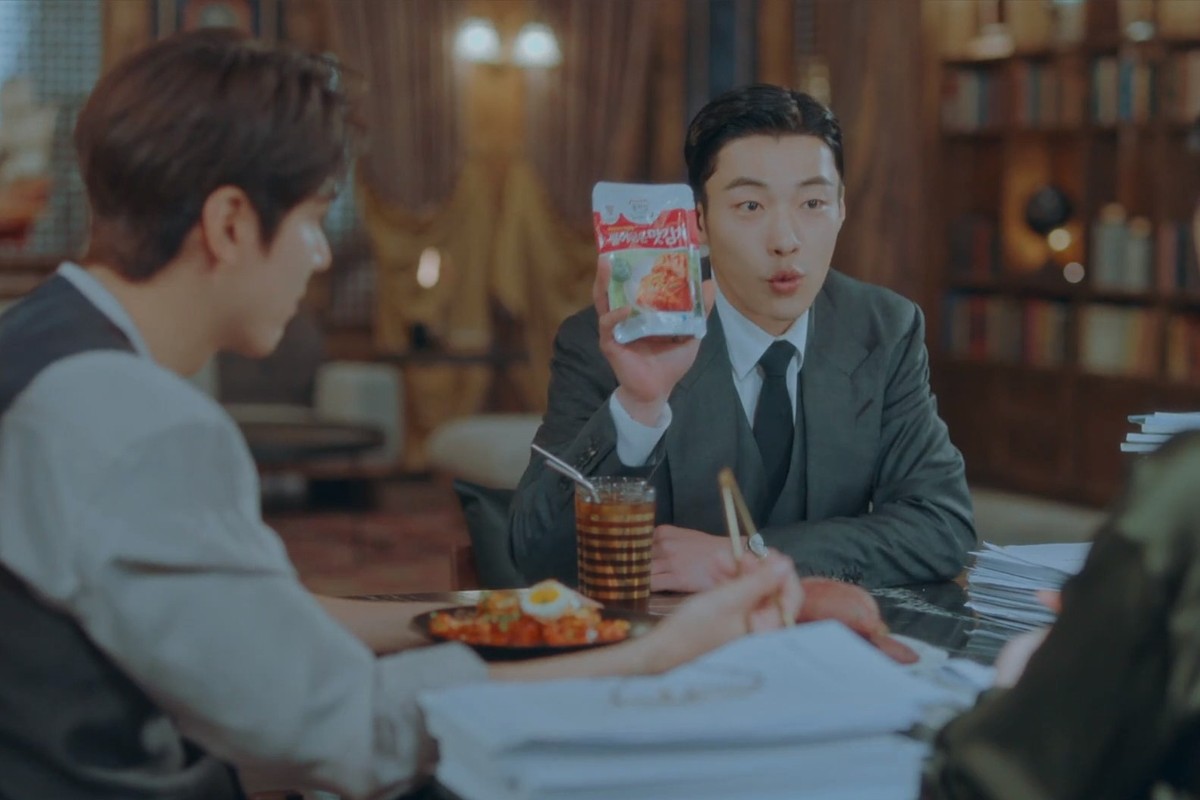 The King: Eternal Monarch product placement
The King: Eternal Monarch product placement
You can identify a product or brand that is being indirectly advertised if you can easily see the brand logo or the company sponsor is listed in the end credits.
PPL In K-dramas
My Love From The Star (IOPE, Tourist Destinations)
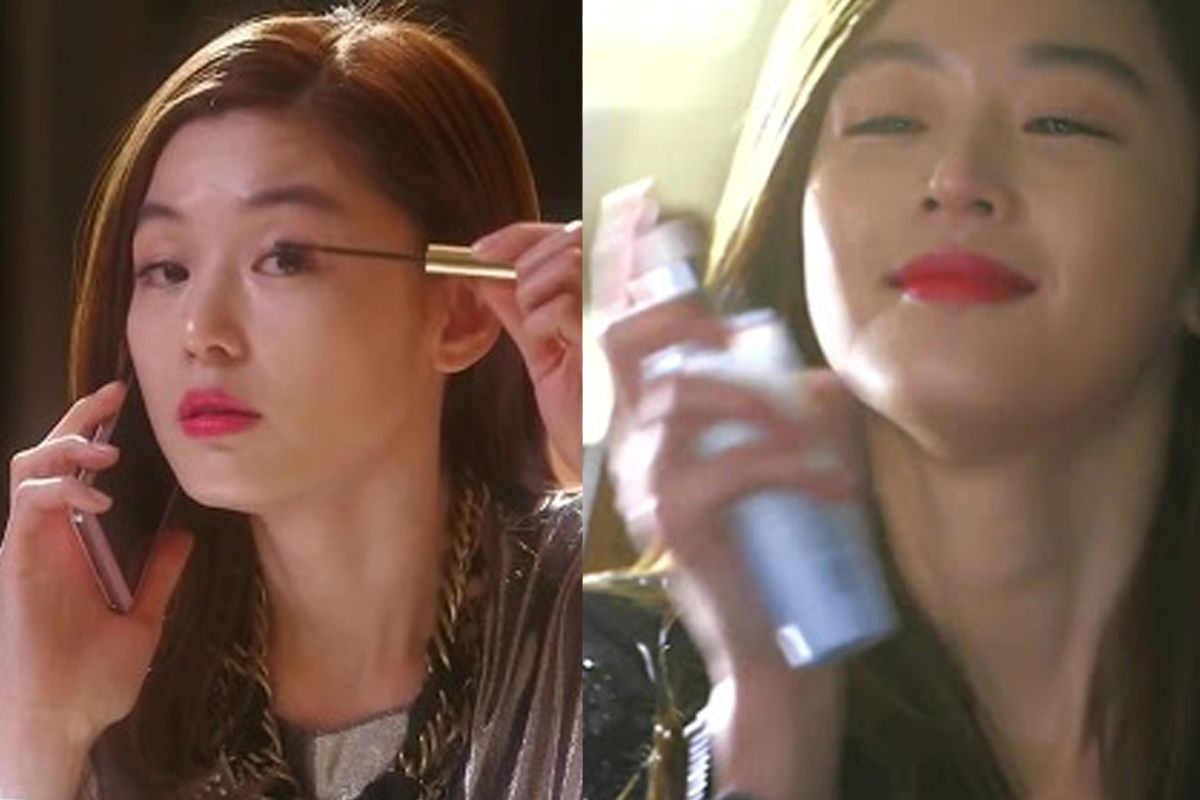 My Love From the Star product placement
My Love From the Star product placement
The brand of makeup (IOPE) used by Korean actress Jun Ji-hyun in My Love From the Star is an example of product placement. After this K-drama aired, IOPE product sales rose.
Even places such as N Seoul Tower and Petite France became more popular tourist locations after appearing in this drama. However, this was an unintentional effect.
Vincenzo (Chinese Food)
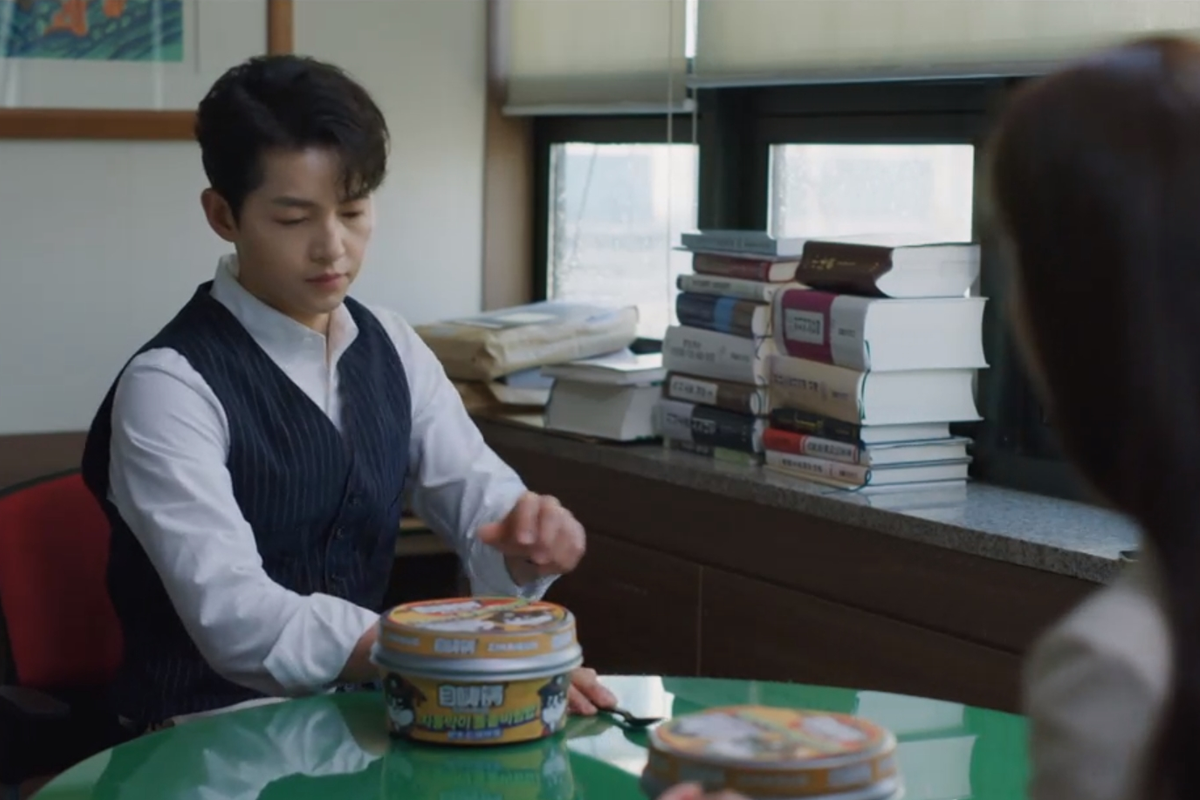 Vincenzo product placement
Vincenzo product placement
A recent example of controversial product placement was of a Chinese brand Zihaiguo's hot pot that appeared in Vincenzo.
Many Korean netizens were upset about this product placement and even requested that tvN delete this scene.
However, to Korean netizens' dismay, tvN's contract with this brand required that this product appear a minimum of four times.
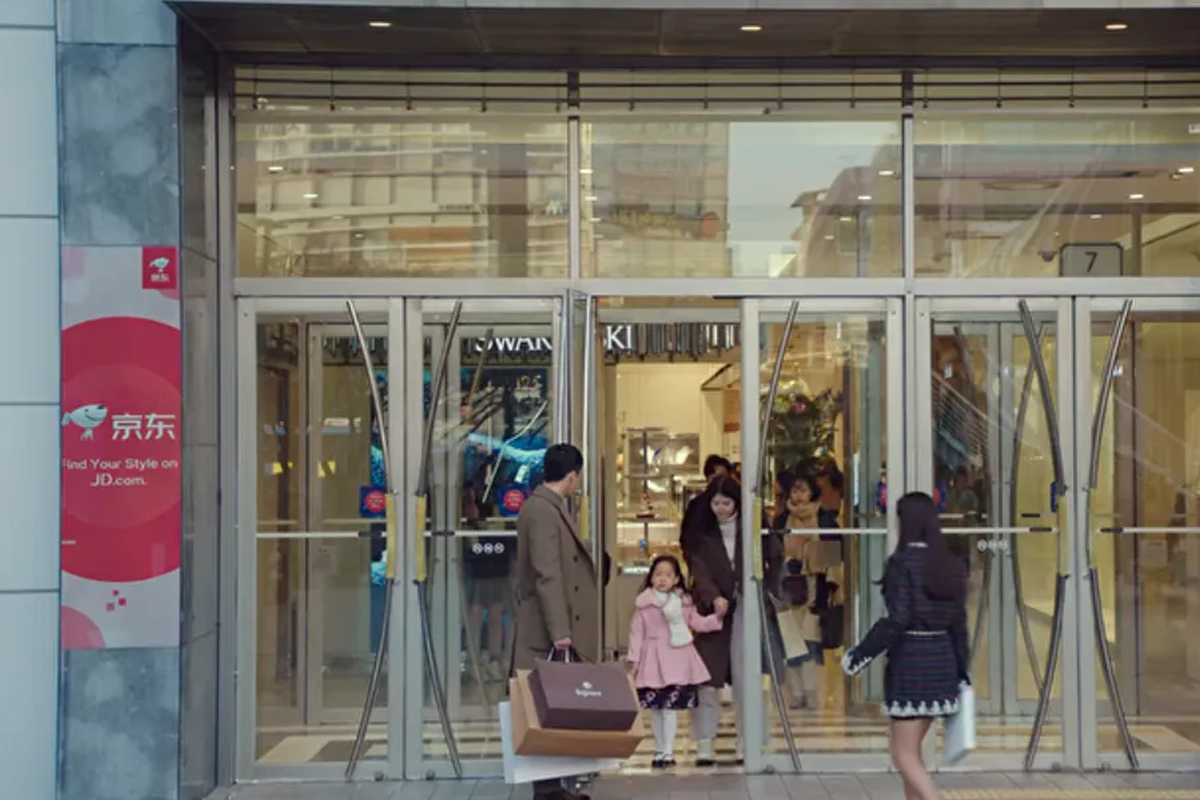 Crash Landing on You product placement
Crash Landing on You product placement
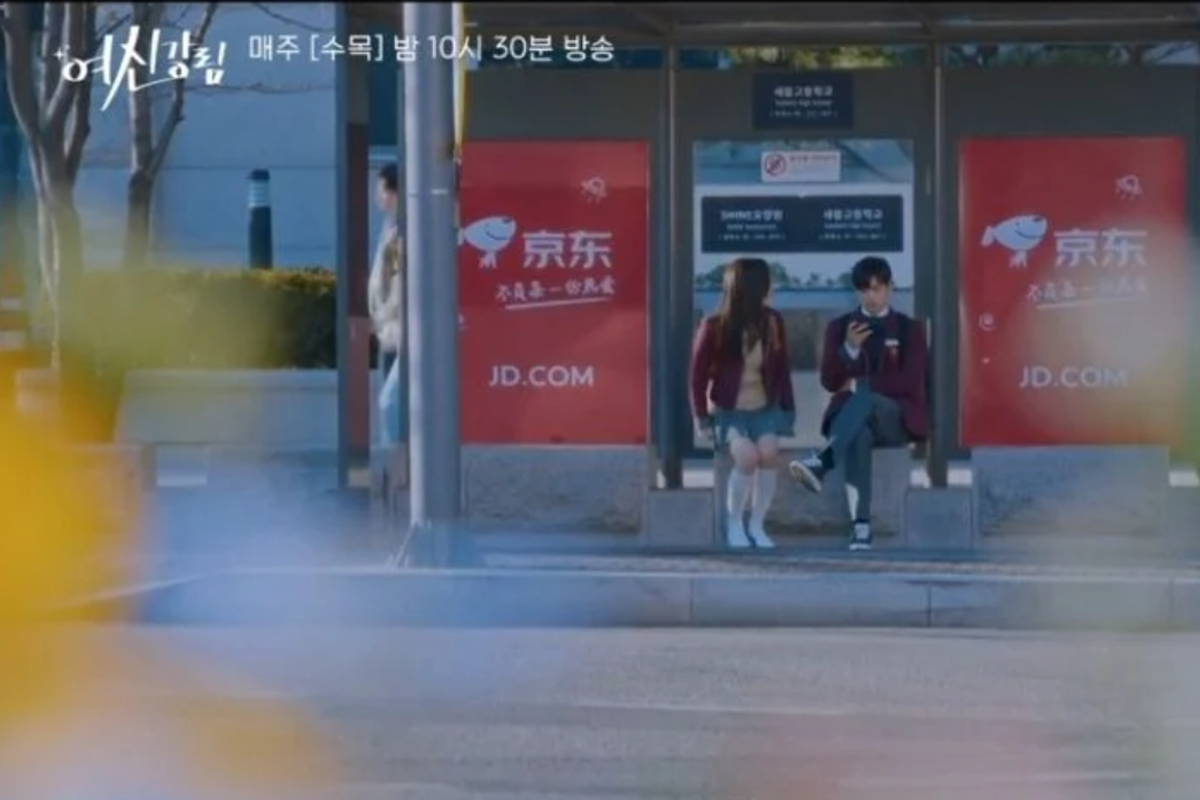 True Beauty product placement
True Beauty product placement
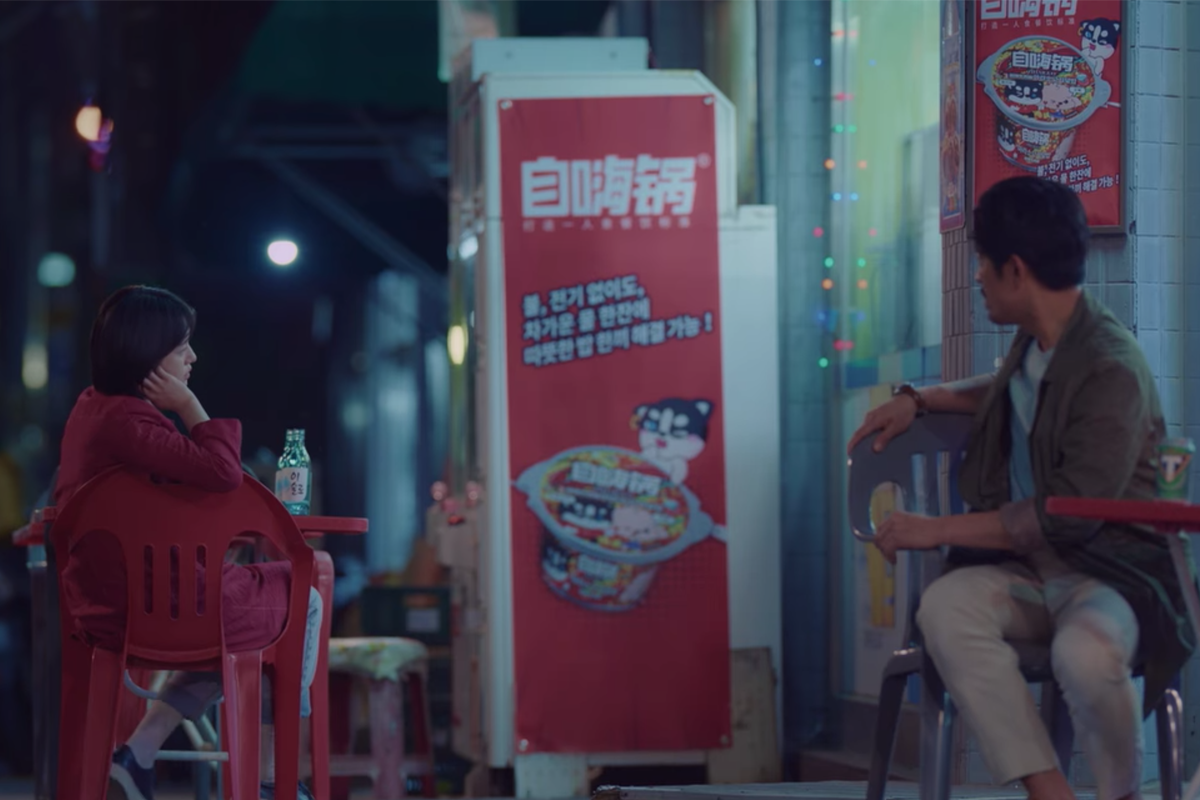 It's Okay to Not Be Okay product placement
It's Okay to Not Be Okay product placement
There have been many other tvN K-dramas with Chinese brand product placements such as Crash Landing on You, True Beauty, and It's Okay to Not Be Okay.
Because of these frequent appearances of Chinese brands, Korean netizens have speculated that much of tvN's production costs are covered by Chinese companies.
Crash Landing On You, Guardian: The Lonely And Great God (BBQ Chicken)
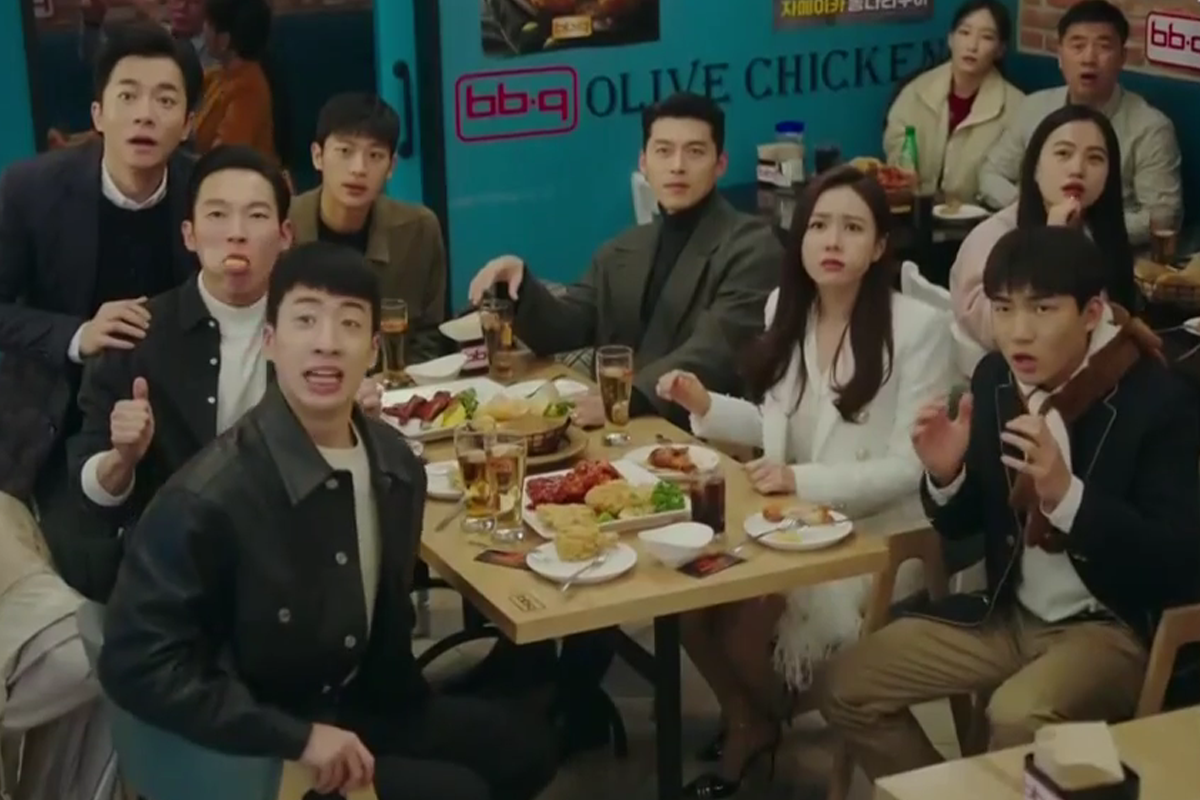 Crash Landing on You product placement
Crash Landing on You product placement
Speaking of product placement in Crash Landing on You, another obvious brand was BBQ chicken. This is where Pyo Chi-soo worked as a part-time delivery person. It is also where the group frequently ate dinner at.
Although it is clear product placement, Korean netizens are willing to forgive it because of the humorous plot lines.
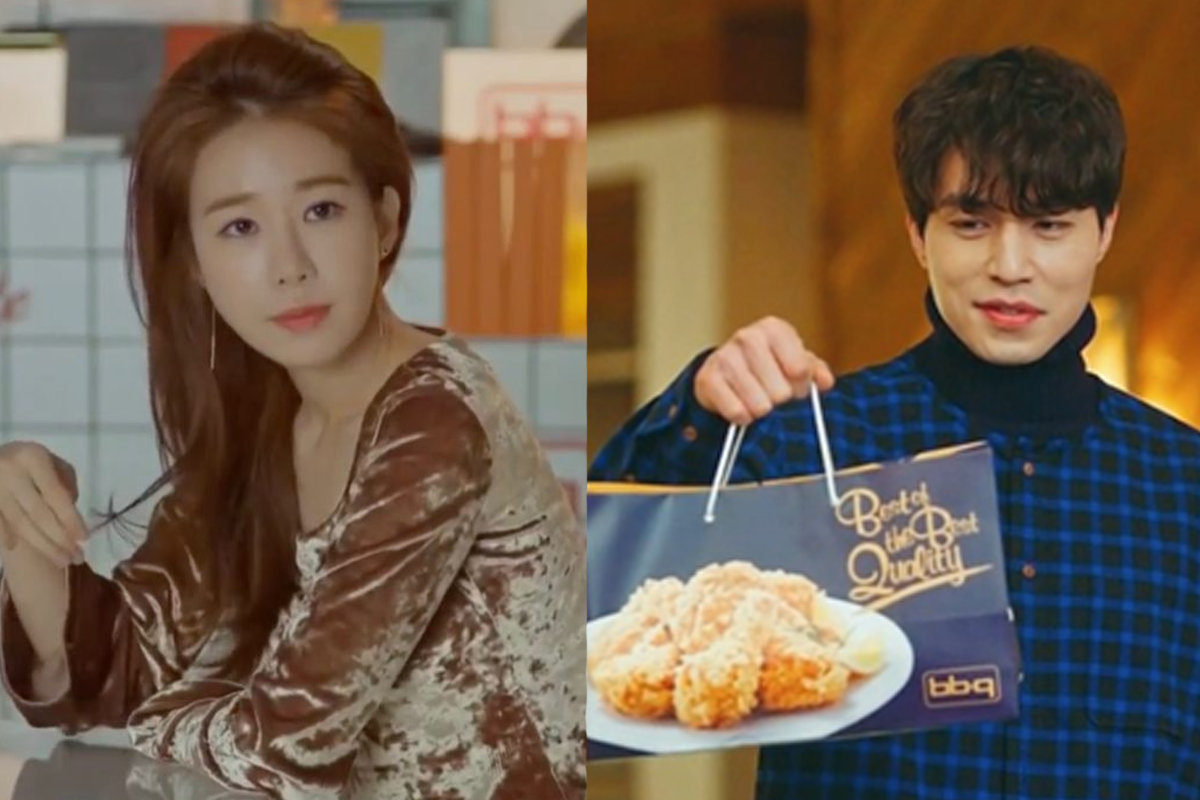 Guardian: The Lonely and Great God product placement
Guardian: The Lonely and Great God product placement
BBQ chicken also appeared often in Guardian: The Lonely and Great God, since Sunny was the owner of one of these branches.
Descendants Of The Sun (Hyundai Motors)
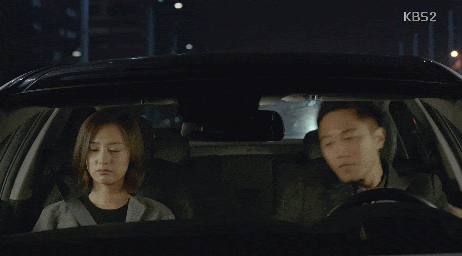
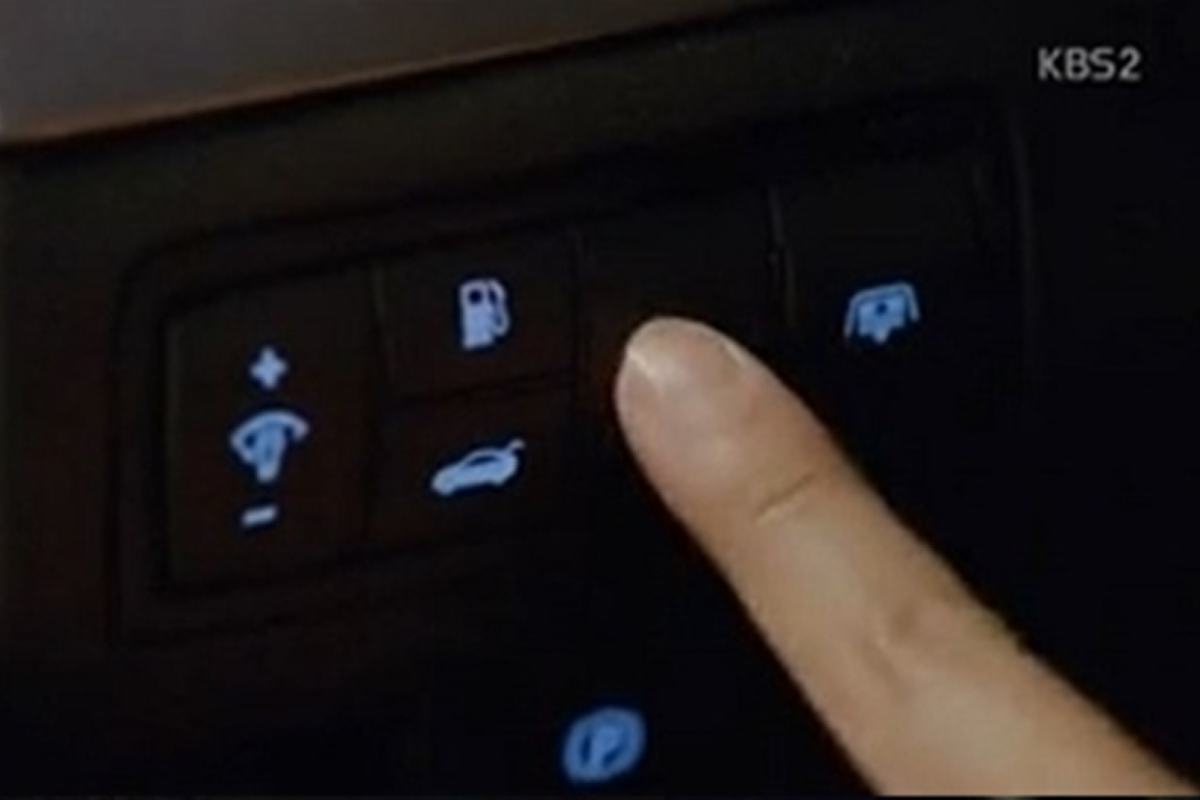 Descendants of The Sun product placement
Descendants of The Sun product placement
Another more controversial product placement was in Descendants of The Sun when Jin Goo and Kim Ji-won were in a Hyundai car and switched it to autopilot.
Viewers felt this scene was unnecessary and actually distracted from the plot.
Some netizens even speculated that the whole K-drama was an indirect advertisement from the government to get people to enlist in the military.
The King: Eternal Monarch (Coffee & Kimchi)

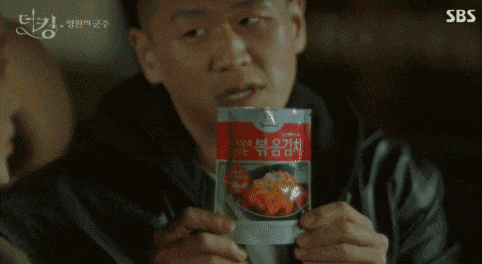 The King: Eternal Monarch product placement
The King: Eternal Monarch product placement
The King: Eternal Monarch was another K-drama that was criticized for product placement. Viewers felt that the product placement was unnatural and often distracted from the story.
Some even argue that it did not seem like a K-drama, but an extended commercial.

Subway
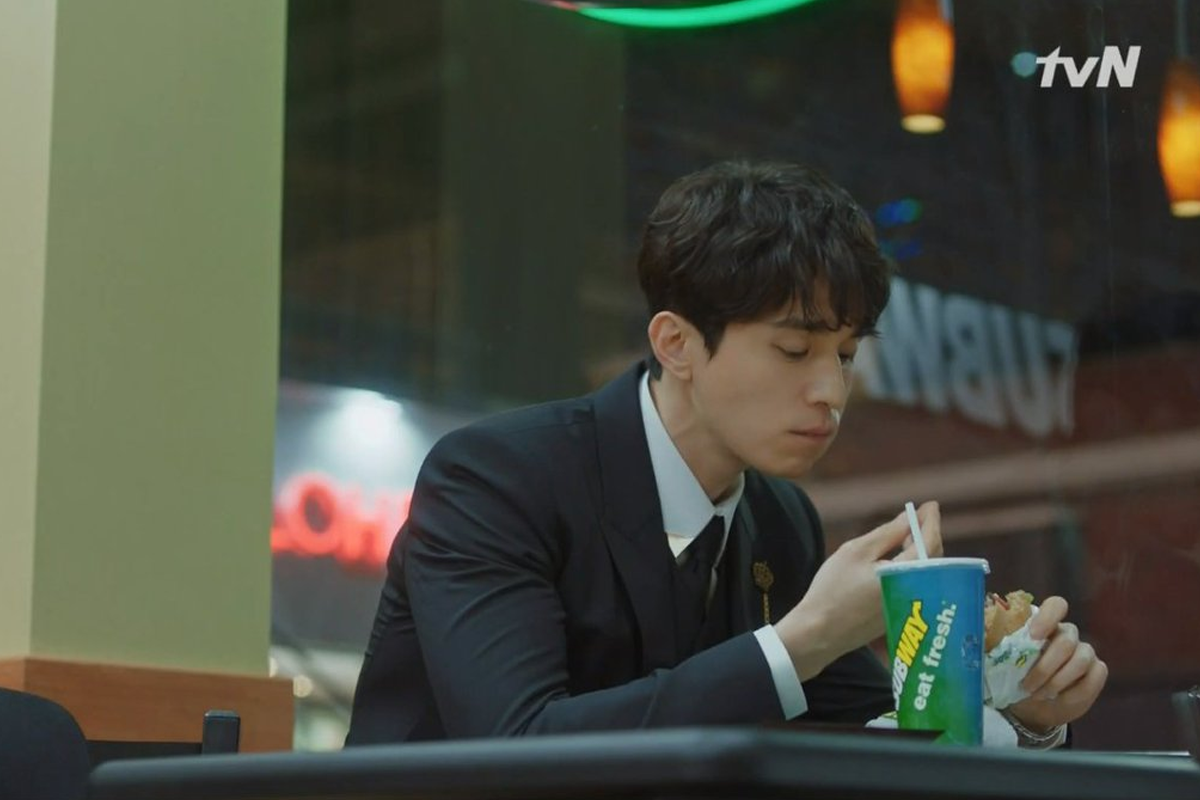 Guardian: The Lonely and Great God product placement
Guardian: The Lonely and Great God product placement
One of the most common brands when it comes to product placement in K-dramas is Subway.
Subway has appeared in many K-dramas such as Guardian: The Lonely and Great God, Crash Landing on You, Record of Youth, Misaeng, etc.
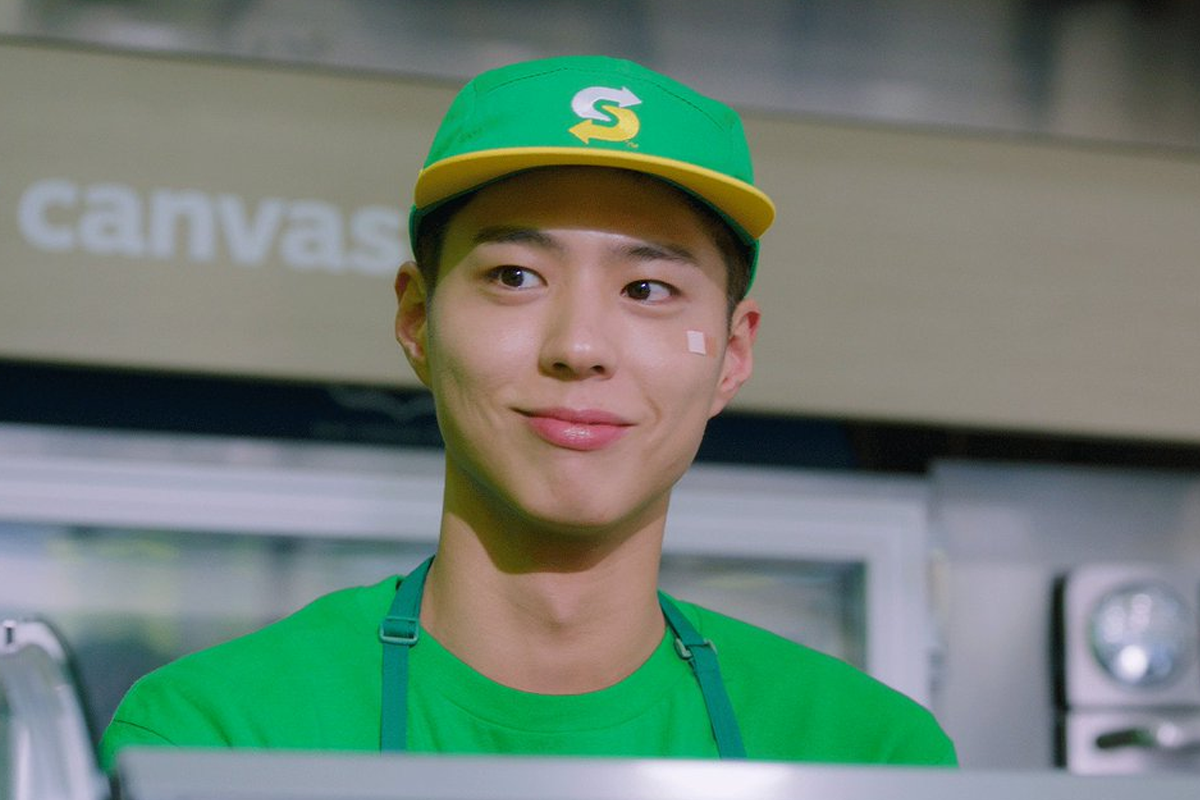 Record of Youth product placement
Record of Youth product placement
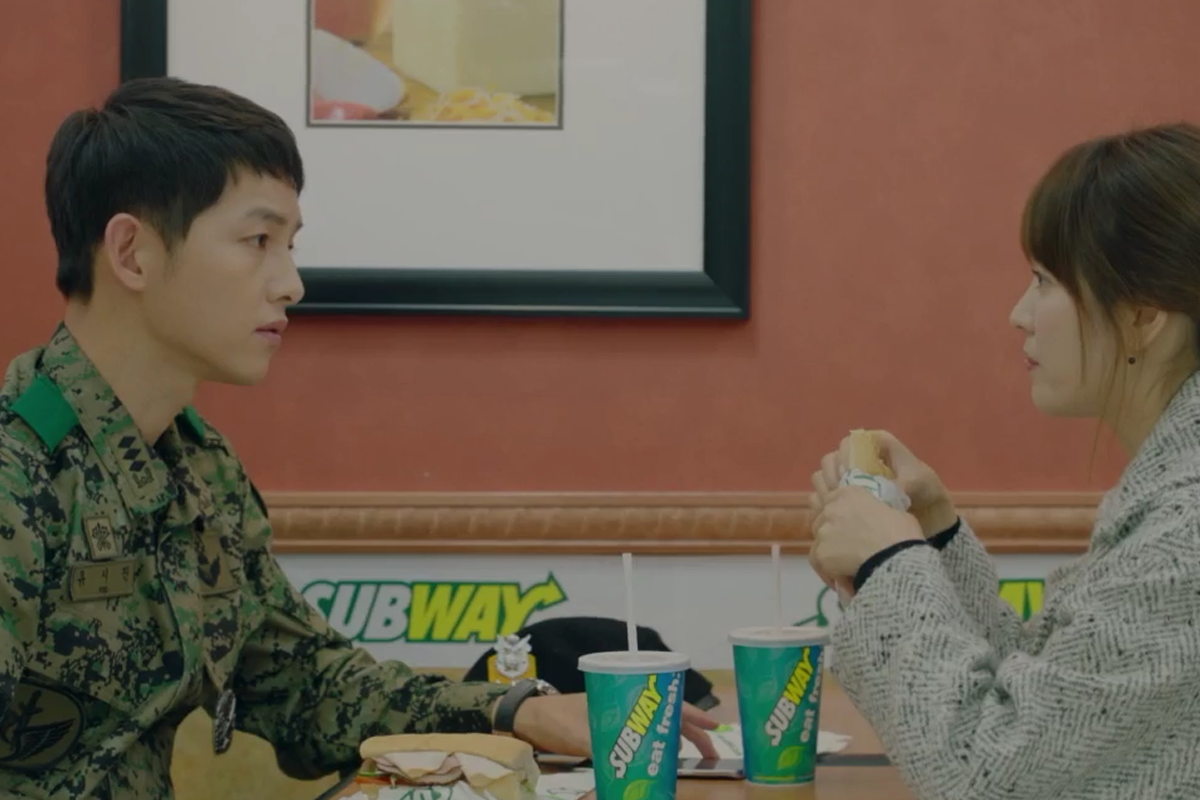 Descendants of The Sun product placement
Descendants of The Sun product placement
Other Kinds Of PPL?
There are other methods of product placement outside of K-dramas.
If a celebrity wears a certain brand for filming, that is also an example of product placement.
Instead of having actors go to a store and endorse an item of clothing directly, it is more effective to have them wear it on a show or broadcast.
Once that program airs, people tend to search for the same clothes the celebrity wore, thus proving to be a successful marketing strategy.
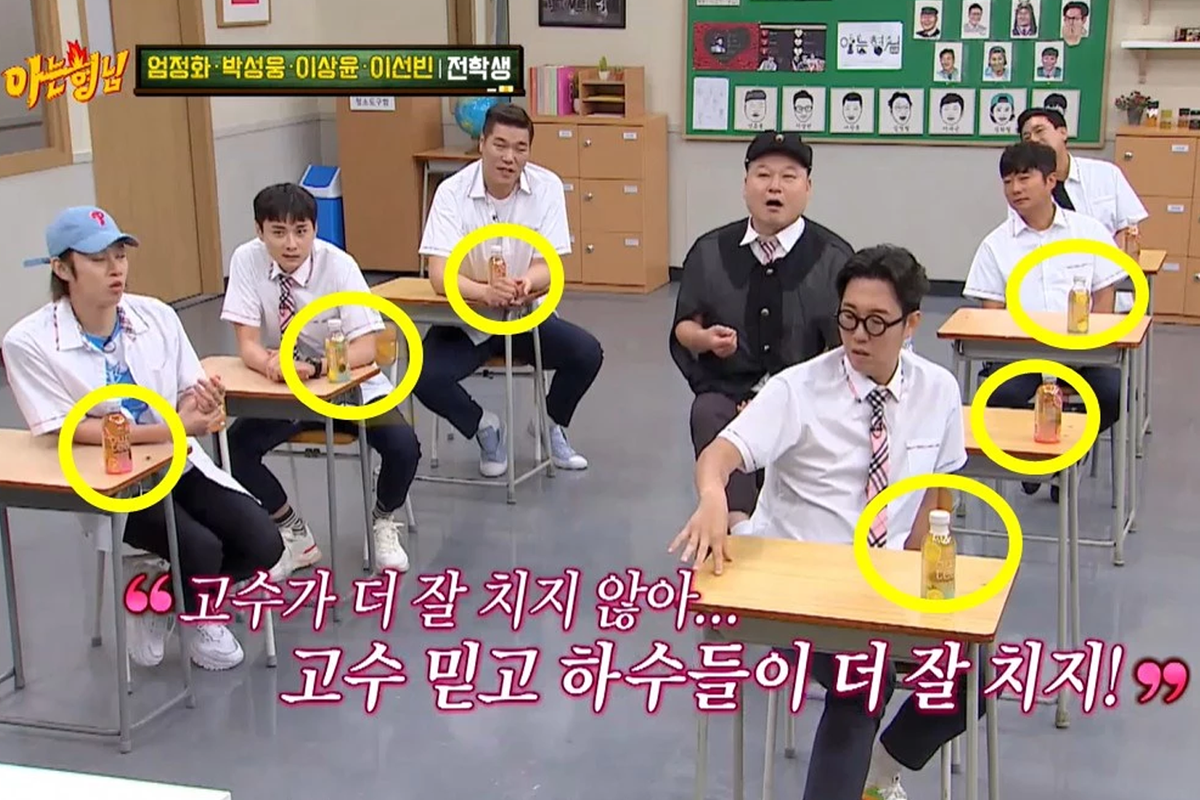 Knowing Bros product placement
Knowing Bros product placement
If product placement is too obvious in a Korean TV broadcast, there is a lot of public backlashes. So instead, cast members of Knowing Bros will have a drink on their desk, and if they drink it the camera will shift the focus to them.
This is actually more effective marketing than a regular ad.
 Running Man
Running Man
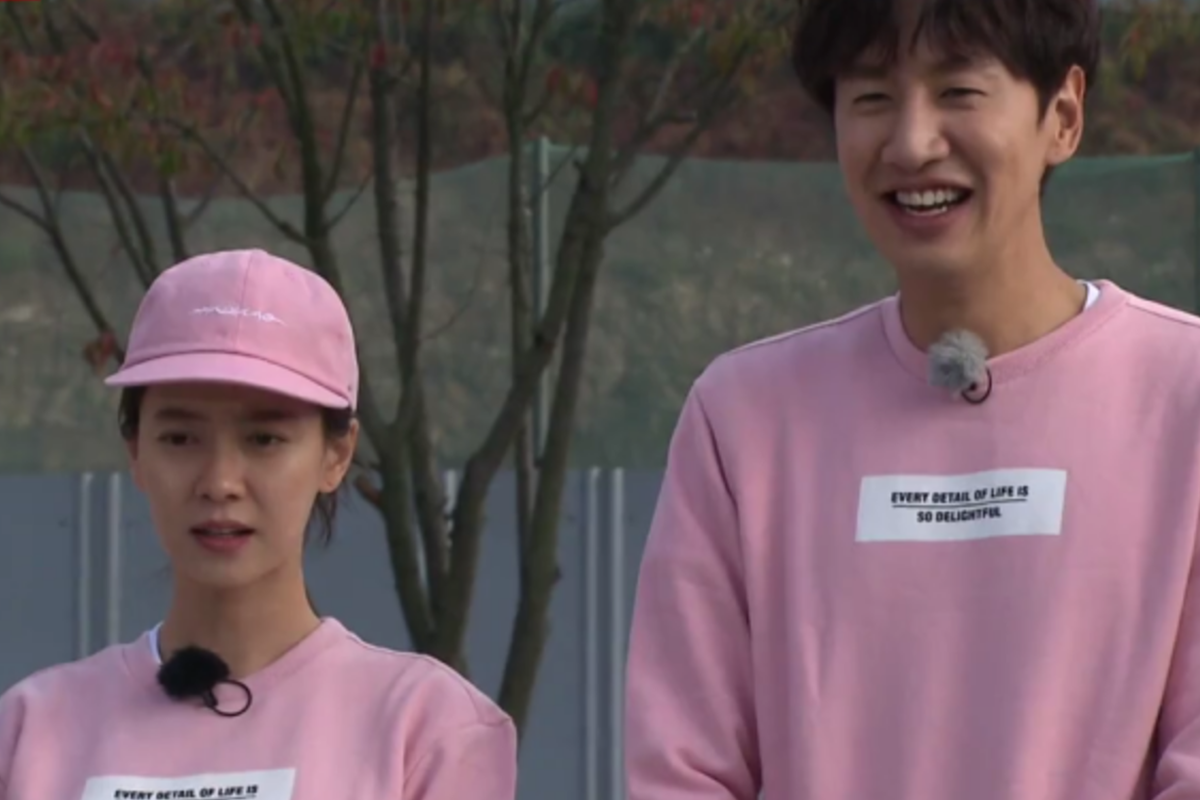 Running Man
Running Man
In Running Man, if a team has tape covering a logo on their clothes, then that brand is not an official sponsor. But if a team has a logo fully exposed, then that brand is an official sponsor.
We hope this blog helped you all understand the role of PPL in Korean media.
There is a lot of debate about PPL in K-dramas, but these sponsors are how these K-drama can be produced. Plus, there are regulations in place that limit PPL.
Please let us know your opinions in the comments below!




